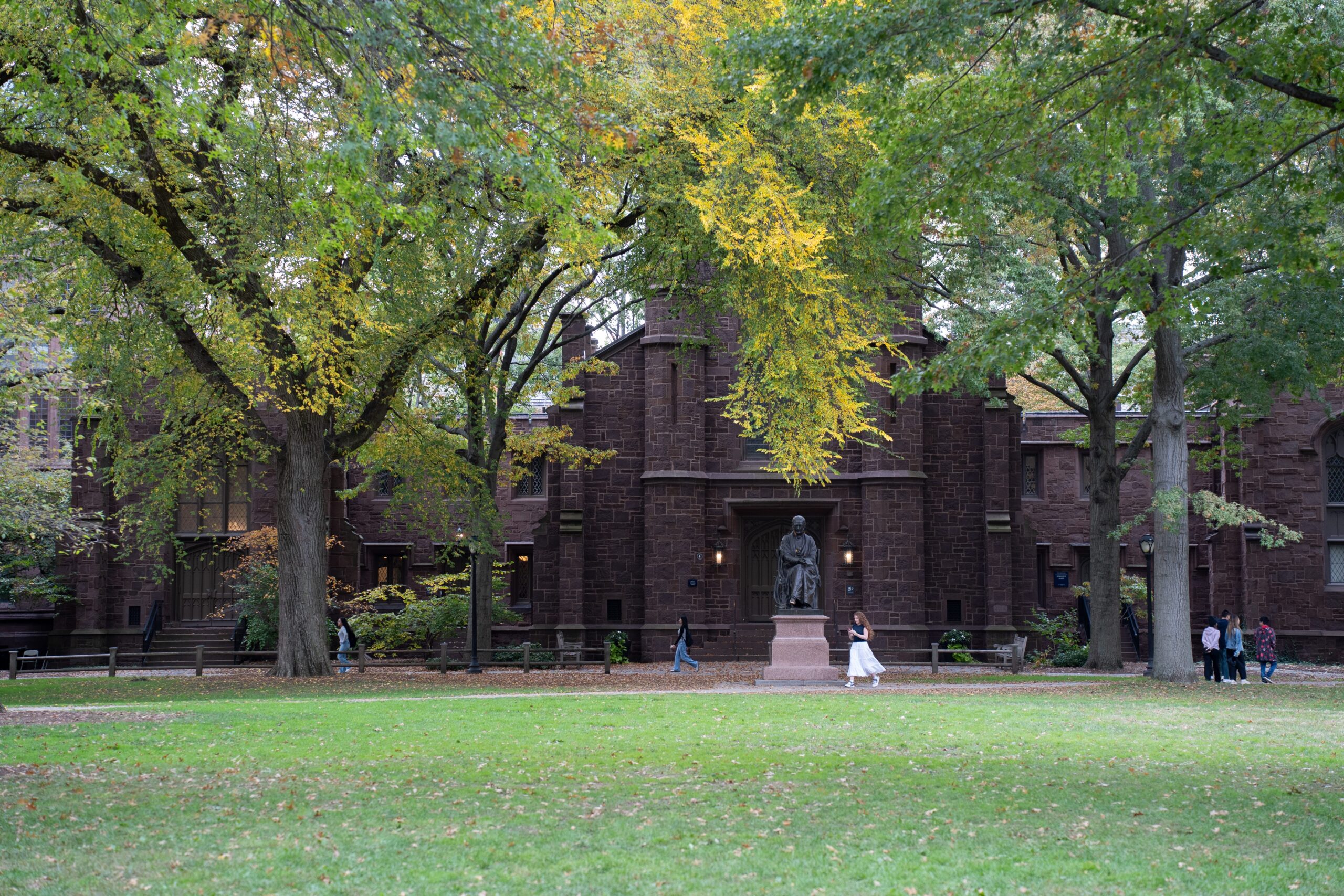First years largely indifferent about Yale’s Trump strategy, survey finds
The News surveyed and spoke with students about their impressions of University President Maurie McInnis and Yale’s strategy toward the federal government.

Ellie Park, Senior Photography
First year students appear to be largely indifferent about Yale’s strategy related to President Donald Trump, despite unease on campus about whether Trump will target Yale’s federal funding.
Around 96 percent of respondents to a survey of first years by the News said their decision to matriculate at Yale was not changed by their perspective on Yale’s strategy relating to Trump, suggesting that the University’s role within national politics had little influence on their college choice.
Yale received roughly $900 million in federal grants in the last fiscal year and has remained nearly alone among Ivy League institutions in managing to avoid the Trump administration’s wrath. So far this year, the University has spent nearly just as much on lobbying as it did during all of 2024.
University President Maurie McInnis has largely avoided making public statements on political issues, though she did criticize the provision in the recently passed Republican tax-and-spending bill that implemented an 8 percent tax on the University’s endowment returns. In June, Yale also signed onto an amicus brief supporting Harvard’s lawsuit against the Trump administration over cuts to federal funding. On Wednesday, a federal judge ruled that Trump’s freeze to Harvard’s research funds was unlawful.
Several students who spoke with the News said they knew little about McInnis before arriving at Yale, although some cited her reputation for helping the University avoid political scrutiny and attention.
“I know that she’s managed, you know, the school’s political situation pretty well,” said Eli Bouganim ’29, noting he has not followed the situation closely at Yale but had heard of federal funding cuts at other schools. “The direction that McInnis and I guess in extension the school is taking to kind of stay out of the spotlight, I think that is the right move.”
The News spoke with eight first years about their first impressions of their University president.
According to Aida Saake ’29, she encountered diverging perspectives on McInnis when researching Yale, including opinions that McInnis “hasn’t done enough in certain respects” and others that Yale seemed to be “out of the crosshairs” of the current administration, which she described as a “major win.”
She is still in the process of determining her own opinion of the University president, Saake added.
“I didn’t know much about her, except that she was relatively new,” Sara Agrawal ’29 said, speaking with the News regarding her initial impressions and knowledge of McInnis. “I knew that Yale didn’t have any, was one of the few Ivies that is kind of more under the radar with that right now, with Trump.”
During her opening speech to the new class of undergraduates, McInnis cited and drew on her background as an art historian. The University president reflected on artist Winslow Homer’s painting, “Old Mill” and described the painting’s principal subject, a woman dressed in red, positioned on a pathway — the direction of her motion unclear.
Agrawal said she appreciated McInnis’ remarks on uncertainty and ambiguity within the painting. She said McInnis maintained a sense of hopefulness for the class, while “hinting at how the world, and even the situation in the University, is a little bit uncertain right now,” and described this balance as “graceful.”
Saake similarly praised McInnis’ reference to the painting and her discussion of experiencing uncertainty. She noted that McInnis’ analysis appealed to her, citing her experiences as a first year and the eldest child within her family, and described a sense of uncertainty regarding the economic and political climate.
“There are a lot of different ways to get to Yale or to get to where we are in life right now,” she said, discussing McInnis’ speech. “I don’t know what the next two weeks will look like with extracurriculars and classes or the next year with new friends and experiences, but it’s not—she didn’t talk about it in a bad light. She framed it very positively.”
Two students said McInnis’ speech inspired them to want to learn more about their University president, including Ziu. She said the speech made her curious about McInnis as an individual and what her impact on campus has been.
“Honestly, I feel like I didn’t really know much about her personally before I came in. I’ve heard great things about her, though. I enjoyed her speech. She seems like a very lovely woman. Like, I want to get to know her more,” said Ellie Joseph ’29, describing McInnis as appearing “very welcoming.”
McInnis encouraged students in a social media post to “stop and say hello” if they see her on campus.
Aiden Zhou contributed reporting.
Correction, Sept. 5: A previous version of this article misstated the amount of money Yale received in federal grants last fiscal year due an error introduced in the editing process. It was approximately $900 million, not $900 billion.







